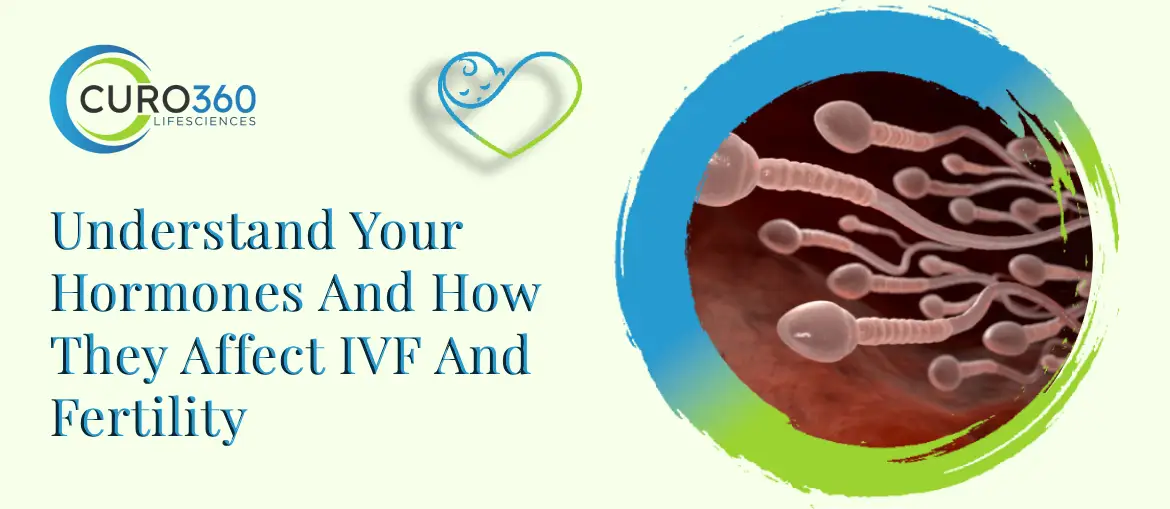
Let’s face it, how many times have you been asked when you’ve been feeling a little strange, “Is it your hormones?” Although it’s not the most useful question and is frequently asked in an inappropriate manner, hormones do have a significant impact on our emotions and bodily processes.
The effects of hormones are nothing new to women. Periods serve as a monthly reminder that our hormones are functioning properly, causing mood swings and cramps. Though, how much do we know about them? Most of us have heard the terms “estrogen” and “progesterone” used, but it’s a quite another matter to know what they mean and how they function.
Hormones play an even more significant influence in fertility. They oversee everything, including ovulation timing and uterine preparation for pregnancy. In addition to improving your understanding of your body, understanding your hormones can be quite beneficial while attempting to expand your family. Let’s explore the intriguing realm of hormones and their effects on fertility.
What Exactly Are Hormones?
Your body uses hormones as chemical messengers. They are produced by endocrine system glands and move throughout your body via the bloodstream. These tiny messengers control a wide range of vital processes, including your growth, metabolism, mood, and, of course, reproductive system.
In terms of fertility, the entire process is controlled by hormones. They prepare your body for pregnancy, start ovulation, and control your menstrual cycle. Knowing how they work will help you take control of your reproductive health and feel more informed about your journey to parenthood.
Important Hormones and How They Affect Fertility:
FSH, or follicle-stimulating hormone:
FSH causes women’s ovaries to produce follicles, each of which contains an egg. FSH promotes the production of sperm in men.
LH, or luteinizing hormone:
Women’s ovulation, or the release of the egg from the follicle, is triggered by the luteinizing hormone (LH). LH causes men to produce more testosterone, which is necessary for the formation of sperm.
Estrogen:
The ovaries generate estrogen, which thickens the endometrium, the lining of the uterus, in preparation for the possible implantation of a fertilized egg.
Progesterone:
After ovulation, the uterus is further prepared for implantation by the production of progesterone. In the early stages of pregnancy, it also aids in maintaining the uterine lining.
Human Chorionic Gonadotropin
HCG is a hormone that helps sustain high levels of progesterone, which are essential for the early stages of pregnancy, and supports the corpus luteum, the structure that forms following ovulation. HCG is frequently used in IVF to initiate the last stage of egg maturation prior to retrieval.
Male testosterone:
Male sexual function and sperm production depend on testosterone, which is produced in the testes.
IVF Hormones
- Ovarian Stimulation: FSH and LH-containing medications are used to encourage the ovaries to generate many eggs. The likelihood of obtaining many ripe eggs for fertilization rises as a result.
- Egg Maturation and Timing: HCG is frequently given to initiate the eggs ultimate maturation and to precisely time the egg retrieval process.
- Endometrial Preparation: To make sure the uterine lining is thick and ready for embryo implantation, estrogen and progesterone are used.
- Supporting Early Pregnancy: Following embryo transfer, progesterone supplements are frequently used to support the uterine lining during the early stages of pregnancy.
What Occurs When The Equilibrium Of Hormones Is Disturbed?
For the reproductive system to function correctly, hormones must be in perfect balance. Infertility issues may arise if this equilibrium is upset.
Hormonal imbalances can result from conditions such as thyroid problems and polycystic ovarian syndrome (PCOS). Lifestyle factors such as stress, lack of sleep, alcohol and drug consumption, poor nutrition and body weight can also play a role. These imbalances may impair egg quality, interfere with ovulation, or reduce the uterine environment’s ability to support implantation.
Assessing And Tracking Hormone Levels
Hormone testing is one of the most effective techniques for diagnosing reproductive disorders and personalizing treatment to individual needs.
Time is important
The timing of fertility tests is important since hormone levels change over the menstrual cycle. For instance, progesterone is usually measured in the second half of the cycle, whereas FSH and LH levels are usually measured early. We can identify any imbalances by monitoring these changes.
Thorough testing
Your AMH levels and other variables like thyroid function, which can also affect fertility, are checked as part of our testing. We can use this information to develop a customized treatment plan that will optimize your chances of success and restore hormonal balance.
How To Boost Your Fertility Naturally?
The good news is that there are natural ways to boost your fertility and support your hormones:
- Put nutrition first: Hormone levels can be stabilized by eating a balanced diet rich in fruits, vegetables, and whole grains.
- Handle stress: Methods like yoga or mindfulness help lower cortisol, a stress hormone that can disrupt reproduction.
- Get adequate sleep: 7 to 9 hours a night is the ideal amount of sleep for hormonal health.
- Get rid of bad habits: Too much caffeine, alcohol, and smoking can disrupt your hormone balance.
